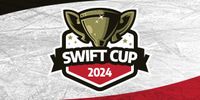Over 2000 calls for rescue are made each year from campsites across the country. They include calls from all ages and for all kinds of reasons.
Be safe this year. Make a list of things you will need.
- Flashlights
- Lighter and water proof matches
- Mirror and whistle
- extra food and water, lots
- all weather clothing
- maps, compass, cell phone with GPS
- first aid kit
- Tarp - for emergency shelter
- sunscreen, hats, and bug spray
People still get lost and it's not just kids. Adults can also get turned around in the woods. A good tip is to know how to use a compass and a map, but most cell phones should also have GPS. However, there's often poor cell coverage in the remote locations where people tend to camp. It never hurts to keep up to date on wilderness skills, like how to use a compass and a map.
Always make a route plan and tell people where you are going - this way people know where to start looking. This includes a sightseeing walk route plan or your plan before you leave your house to head out to one of the approximately 100,000 lakes in the province. What highways you'll take and where you plan to stop for breaks.
Campers still get injured chopping wood. It is recommend that you always use the right tool for the job. Heat exhaustion is a worry with the warm weather we've had this year, as well as wildlife concerns. Always remember to store your garbage in a sealed container.
Fire bans are generally issued locally so always check with the local RM, Town, or Park staff before starting a fire. Open fires are always dangerous, as it only takes one rogue spark to cause a disaster.
Enjoy a safe campfire by following some safety tips:
- Check to see if there are any fire bans
- Keep fire 2 to 3 meters away from anything that could catch fire
- Never use gasoline to start a fire
- Never leave the fire unattended
- Douse the fire with water when done.















